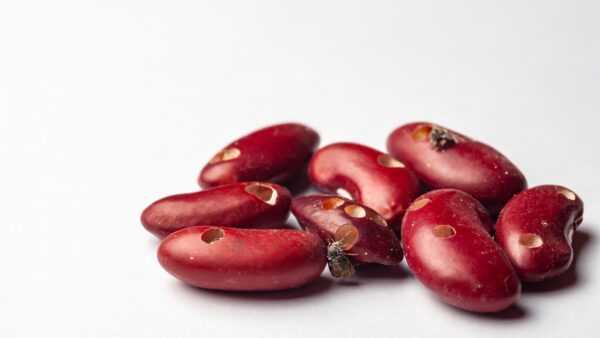Jodi Souter is one of the latest Nuffield Scholars. The Nuffield Canada Scholarship is a rural leadership program available to anyone mid-career who is involved in agriculture in any capacity of primary production, industry or governance. Each year scholarships are awarded to individuals who are expected to assume positions of greater influence in their field in the future. This is Part 2 of a three-part series. Go here for Part 1.
“When most people think of plant breeding in Canada they think of an academic institution, or government,” says 32-year-old Jodi Souter, based in Saskatoon, Sask.
“If we don’t change that perception, we’re going to hold back innovation and that innovation will go elsewhere.”
For her, the beginning of this mission began with the creation of her own plant breeding startup, J4 Agri-Science. Through it she intends to support activities for crop development, scientific research and industry expansion.
“I consider myself an independent breeder,” she says. “I’m targeting crops and breeding them through my company and not through a public institution. It’s a different mindset. Other countries already do it this way and it’s time we did more of it in Canada, too.”
Souter is not quite sure where her independent streak comes from. It may have started growing up on the family mixed grain and beef farm in Saskatchewan, or while working to obtain her PhD in plant biology from the University of Saskatchewan. Being a competitive distance runner may have helped, too. Wherever it came from, it’s something that’s guided Souter for years.
“I took a breeding class with Curtis Pozniak at the Crop Development Centre (CDC). It didn’t take me many classes to know I really wanted to be a plant breeder,” she says.
For Souter, what’s making it possible to be a truly independent breeder in Canada is the headway made in recent years with regard to Plant Breeders’ Rights legislation. Canada signing on to UPOV 91 was a big deal for her. In her view, the doors are opening to do new kinds of breeding that put Canada on the map as an attractive place to innovate. “Future opportunities for Canada’s crop sector are limitless.”
As part of her Nuffield project, she plans to learn more about the progress and limitations surrounding crop development in varying political environments. She will gain insight into opportunities enabled by the Plant Breeders’ Rights Act and hopes to promote innovations in the development of cutting-edge varieties to enable farmers to be more competitive in the global market. She’s fascinated by opportunities opening up in the plant-based protein sphere.
“The academic research being done is so important, but turning to private industry gives you flexibility. You can target traits faster. It’s a game-changer to have that within the agricultural landscape,” she says. “With it, people like me will bring more diversity to crops in Canada.”
J4 Agri-Science is just starting up, but she has a big vision. “The focus of my company is looking at crops that might not have foothold in Western Canada and using any and all technologies possible to take them to the next level, without worrying about established norms like public sector versus private sector. I just want to get the job done.”

Kofi Agblor admires that sense of fearlessness, so much so that the former director for the CDC-turned independent consultant decided to work with her. He has become an advisor for an International joint venture currently being developed, an organization which Souter is also involved in. When Agblor was director of the CDC, she approached him with an interest in flax and faba bean.
He showed her a U.S. study that found the most promising crops in the protein sphere included flax, chickpea and lentil.
“We talked about how the protein of the future won’t be from protein isolate but different sources of grain that have enough protein to make a 55-cent burger. She really intrigued me — she wanted to work for herself, as opposed to graduating and getting on with a public or private institution. It was a really exciting attitude and one becoming more prominent in the field of plant breeding,” Agblor says.
“I thought, ‘How can we help young people like this make a go of it in plant breeding?’ Unless you sign onto a bigger organization or company, it can be hard to do. We need to encourage people like her who want to build a career in the private sector but work for themselves and start something of their own. The more of those people we have, the better. They’re the ones who really encourage new innovation.”
“The academic research being done is so important, but turning to private industry gives you flexibility. You can target traits faster.”
—Jodi souter
For Souter, initiatives like signing on to UPOV, seed regulatory modernization, the Variety Use Agreement (VUA) pilot program, and the effort to create Seeds Canada — the country’s first single national seed organization — come at a time when the country is overhauling its agriculture industry in an attempt to compete with other parts of the world. Australia, for example, has almost completely privatized its wheat breeding.
“This is a business with tight margins. Without the ability to regain revenue through royalties, you stifle innovation. Part of my Nuffield study is looking at opportunities and obstacles to private breeding in Canada. Other countries have taken other avenues for royalty collection and the SVUA is a great step to doing that,” she says.
She also cites Canada’s approach to biotechnology legislation — including a need to update its Plants with Novel Traits (PNT) legislation, as something that needs to be overhauled.
“If we don’t clarify or responsibly modify some of those regulations, it’s going to hold back innovation. We’re already seeing how breeders aren’t targeting traits they would be if we were to modify our PNT legislation.”
For Agblor, it’s her enthusiasm to think big in order to get the job done that excites him. “She’s prepared to consider any technology to allow her to make progress in plant breeding. In the future, breeders have to integrate biotechnology. So far, they are adapting it for their own uses, but the future is integration. We can no longer just use biotech once in a while when it comes in handy — the future is using it in tandem with all our other technologies,” he adds.












